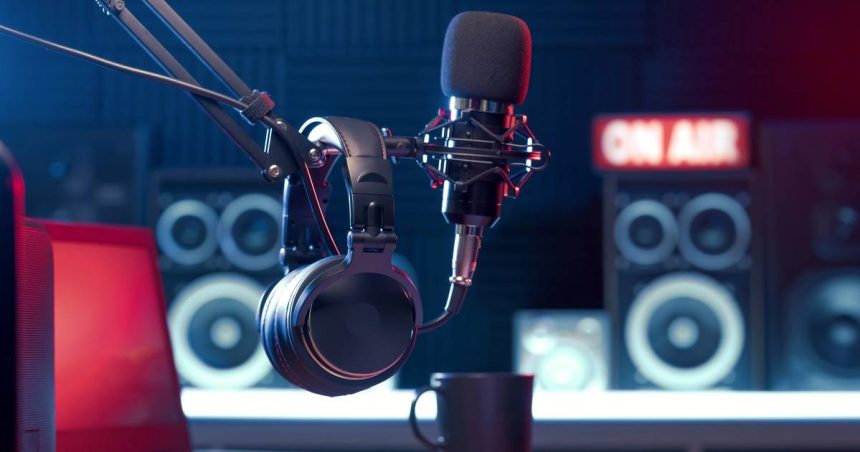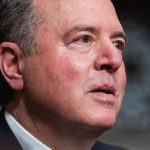It started with the TV industry.
Upfronts, that is. The annual gathering of media buyers and sellers dates back to the 1960s, when ABC gave the first upfronts presentation, and the TV industry still descends on New York City every May for upfronts.
They’re not the only ones—the podcast industry has, for almost ten years, had its own version of the upfronts, too, even though there’s no pressing need for podcast companies to do deals in May, as new shows, seasons, and episodes are not beholden to the strict confines of TV schedules. As of this year, there will be more than one.
At the upcoming IAB Podcast Upfront, which takes place on May 9, presentations are likely to stretch beyond previewing content to topics including ad tech and multi-channel campaigns, especially as the popularity of podcasts distributed on YouTube and other video platforms continues to climb.
“Audio content writ large is entering the cultural zeitgeist at an even higher level than it ever has in the past,” Matt Shapo, director of digital audio and video at the IAB, told Marketing Brew. “People in the advertising community are beginning to understand that audio is increasingly important from a total marketing standpoint, and then if you want to build a truly effective campaign, you can’t ignore the contributions that audio is going to make to an overall omnichannel campaign.”
Annual podcast ad revenue has been on the rise, and the outlook for this year remains positive, according to Sarah Bolton, EVP of business intelligence at the media research company Advertiser Perceptions. In an annual survey of 250 digital audio advertisers, the company found that in both 2022 and 2023, about 40% of podcast spend was in the form of an upfront buy, Bolton said.
This year for the first time, the podcasting community and conference Podcast Movement hosted an upfront-style event, the PodMov Podfronts, at its annual Evolutions conference in March. It was more conversational than a traditional upfront, Podcast Movement President Dan Franks said, with networks and publishers set up in booths around a ballroom where they could have one-on-one conversations with buyers as opposed to presenting from a stage, but “there was actual selling getting done,” he said.
Lizzie Widhelm, SVP of B2B marketing and ad innovation at SiriusXM Media, said her company does deals and hosts client meetings around the IAB Podcast Upfront. “There’s always a benefit to getting in front of people when a market is emerging and growing,” she said, but added that perhaps the event could consider rebranding itself, since presentations tend to focus on tech innovations and case studies as opposed to just new content.
Widhelm isn’t the only one who thinks so. “I think they need to change the name,” Greg Glenday, chief business officer at Acast, said. “It’s got to be something different, where it’s a chance for big podcasting companies like ours [to say]…‘Here’s what we’re doing as a company,’ but we’re not going to get into, ‘Here’s our top three podcasts, or here’s three podcasts we think you might find interesting, randomly.”
In recent years, podcast execs have gone beyond discussing content alone during their presentations. Last year, branded podcasts, brand safety, and case studies were popular topics of discussion, and in 2022, some networks stressed the diversity of their hosts and audiences, while others shared stats about podcast ad trends from reports based on their own data.
Get marketing news you’ll actually want to read
Marketing Brew informs marketing pros of the latest on brand strategy, social media, and ad tech via our weekday newsletter, virtual events, marketing conferences, and digital guides.
This year, Shapo expects data and targeting to lead some discussions. Programmatic marketplaces and ad-tech tools like device graphs are available in podcasting, and larger advertisers are “starting to figure it out,” Shapo said, but there’s still a certain level of education to be done. SiriusXM’s presentation, meanwhile, will hit on the network’s audience targeting, campaign measurement, and brand safety offerings, as well as content, case studies, and AI in voice advertising, Widhelm said.
Another topic that’s likely to come up at any podcast industry gathering these days: YouTube. Talk of the platform as a partner to podcasts started up significantly about a year ago, according to Franks, and interest among advertisers and creators hasn’t waned.
“We’ll meet a creator, and we’ll ask them about their podcast, and then halfway into the conversation, you realize…they might not even have an RSS feed, which would be considered a traditional podcast,” Franks said. “They just have a YouTube show, but they’re calling this thing a podcast, and if they’re calling it a podcast, and lots of people are doing that, then doesn’t that kind of make it a podcast at this point? That’s where the vernacular is going.”
At Acast, the team prefers the term “audience” over “listeners,” Glenday said. “If we say ‘‘podcaster’ and ‘listener,’ you’ve pigeonholed yourself.” The company has had success with multichannel ad campaigns, even beyond just YouTube, he added. For instance, Maker’s Mark’s sponsorship of the podcast Your Mama’s Kitchen included in-show content as well as YouTube and Instagram assets, Glenday said. From 2022 to 2023, Acast experienced a 46% increase in advertisers booking multichannel campaigns.
SiriusXM has also seen “huge interest” in multichannel campaigns, according to Widhelm, especially among advertisers who are more interested in aligning with a particular show or host as opposed to basing their campaigns on audience targeting.
“I think there will be a future where you will see each creator take advantage of YouTube, just like they would take advantage of TikTok or Instagram, to drive audience engagement,” Widhelm said. “We’ll do what we can to bring advertisers into those experiences where it makes sense.”
Correction 5/6/2024: This piece has been updated to correct the spelling of Lizzie Widhelm’s name.
Read the full article here










